Feature
 From Hi-Tek to Jan. 6th: Vietnamese Americans are no strangers to political organizing.
From Hi-Tek to Jan. 6th: Vietnamese Americans are no strangers to political organizing.
Published August 9, 2024
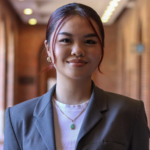 Katelyn Do
Katelyn Do
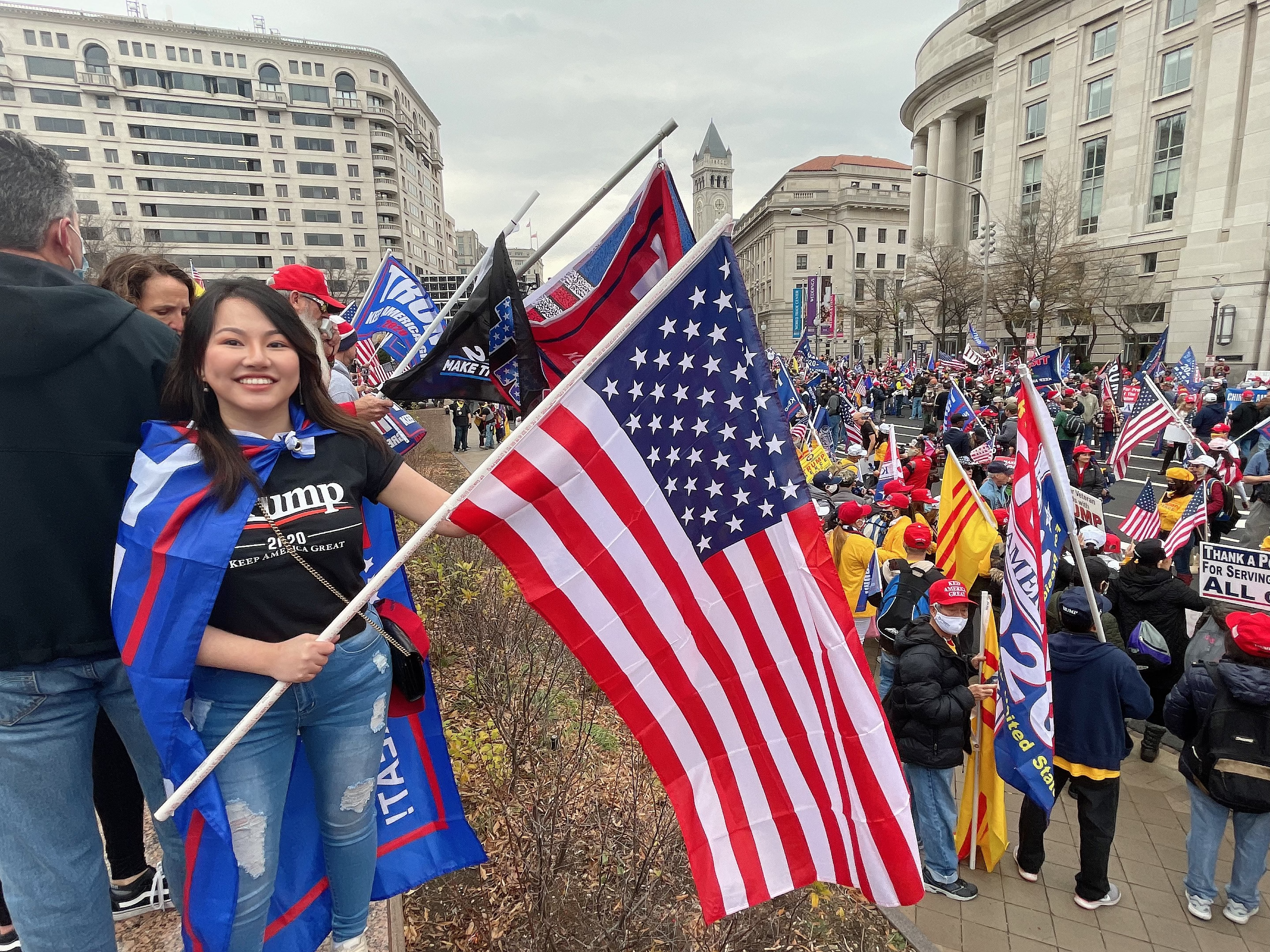
Courtesy of Nhi Ngoc Mai Le.
On Jan. 6, 2021, Nhi Ngoc Mai Le, 27, traveled from Illinois to Washington D.C. with hundreds of Vietnamese supporters of former President Donald Trump to protest against the 2020 election results.
“I support him because he supports hard-working people… when I first came here, I didn’t have anything,” said Le in Vietnamese. Le came to America in 2016 when she was 19 years old without any resources and related to Trump’s business acumen.
“Now, I have three houses and a business,” she added.
There are no firm statistics on the demographics of people who attended the Jan. 6 insurrection. But a report from Seton Hall University shows that of the seven Asian people charged with their involvement in the event, five of them were Vietnamese. One of them was Le, who was sentenced to ten days in jail in February 2024 for disorderly conduct in the U.S. Capitol.
The right-wing sentiment Vietnamese Americans demonstrated at the Jan. 6 insurrection is nothing new — Vietnamese Americans have been organizing on the right for decades. Now, more progressive activists are finding a voice too. And regardless of their political beliefs, Vietnamese Americans are showing that civic engagement goes beyond just voting.
A long history of conservative politics
A survey conducted by the Pew Research Center showed that while most Asian voters identify with the Democratic Party, about half of registered Vietnamese American voters are registered as Republicans.
“The relationship between Vietnamese Americans with Trump is not just a Trump thing. They’ve been loyal members of the Republican Party for decades,” said Joseph Nguyen, a lecturer on Asian American Studies at California State University, Long Beach.
After Saigon fell in 1975, the communist-led North took over the U.S.-backed South to reunify the country. As a result, the Republic of Vietnam, commonly referred to as South Vietnam, fell. Millions of Vietnamese people that collaborated with the U.S. or were critical of the communist government fled the country to escape re-education camps or imprisonment. As a result, the first waves of Vietnamese immigrants held deep anti-communist views and a strong sense of South Vietnamese nationalism.
Prominent Democratic politicians vocally opposed Vietnamese immigration. Then-governor of California Jerry Brown famously stated that he did not want the state to accept any Vietnamese refugees. Meanwhile, some Republicans, like U.S. Sen. John McCain of Arizona, voiced support for Vietnamese migration.
“Democratic Party in general was more hesitant to welcome meeting these refugees,” Joseph Nguyen said.
On top of that, left-wing American antiwar movements pressured the U.S. to leave the Vietnam War and pull its support for the South Vietnamese Army. As a result, Vietnamese Americans associated the Democratic Party with the antiwar movement and anti-South Vietnamese sentiment, Joseph Nguyen said.
“Vietnamese Americans already had a weird relationship with the Democratic Party,” he said.
When Vietnamese refugees settled in Little Saigon in Orange County after the war, they brought with them the trauma and painful memories of losing their country. In 1999, thousands of Vietnamese Americans protested the local Hi-Tek Video store for months after it displayed images of communist leader Ho Chi Minh and the version of the Vietnamese flag representing the Communist Party. The store eventually closed, and the protests garnered national attention. The “Hi-Tek Incident” cemented Vietnamese Americans as a politically impassioned community.
“It showed the Vietnamese American community on a national stage that they had a voice… Vietnamese Americans know it. And [it] tells Vietnamese Americans that protests work. They cause a lot of attention.” Joseph Nguyen said.
Since Hi-Tek, there have been various other demonstrations led by the Vietnamese community to advocate for further normalization of American relations with Vietnam or the removal of what many consider to be communist symbols.
On the other hand, the Vietnamese American cultural landscape has historically not been a safe space for people to express progressive ideals. From the late ’70s to the ’80s, Vietnamese American activists and journalists were killed, harassed and outcast for voicing progressive opinions.
“There was almost a militant repression of speech of those progressive voices,” Joseph Nguyen said. Any movement to connect with Vietnam today, he said, “is considered communist or at the very least betrayal.”
Today, most Vietnamese flags flown in Little Saigon are yellow with three red stripes, representing the nation of South Vietnam that was lost in the Vietnam War.
Electoral participation
Vietnamese Americans bring this political fervor to electoral politics as well. In Westminster, California, Vietnamese Americans make up four out of five City Council seats despite only making up less than half of the ethnic makeup of the city.
“Vietnamese Americans are overrepresented in their political advocacy because they’re just so good at organizing,” Joseph Nguyen said.
The Vietnamese community is a population of 2.3 million amongst Asian Americans — the fastest growing minority population in the United States. And their voices are becoming influential in this upcoming election. A 2024 survey conducted by APIA Vote revealed that 92% of Vietnamese American voters who responded to the poll were planning to vote in the upcoming election.
Members of the community, regardless of where they are on the ideological spectrum, are politically involved, said Vincent Tran, organizing director at social justice non-profit VietRise OC.
“There’s this perception that for Vietnamese immigrants, especially like the older generation, they’re not very attuned with the political process,” he said. “You look at the number of different protests, the different number of organizations and how right-wing candidates mobilize the community to vote… there’s definitely strategy involved in that.”
Nhat Nguyen, another Jan. 6 protester, continues to campaign for Trump in his local community in Houston. He posts about Trump daily on his Facebook to his almost 10,000 followers and provides voter registration to customers at his herbal medicine shop.
Nhat Nguyen also frequently promotes and helps plan community events hosted by the Vietnamese Cultural Association.
“In this city, I know my community very well. The people here always ask my opinions on things, big or small,” Nhat Nguyen said in Vietnamese.
But he often makes unproven claims about voter fraud in the 2020 election, which concerns Vietnamese progressives like Khanh Nguyen, a board member for the Progressive Vietnamese American Association or PIVOT. The group focuses primarily on supporting progressive policies and candidates.
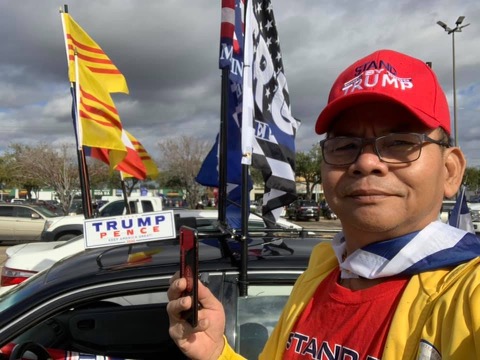
Progressive voices
One of PIVOT’s main projects is a website called Viet Fact Check that intends to combat disinformation within the Vietnamese community.
But progressive organizations have only recently emerged because of the stigma surrounding progressivism in the Vietnamese diaspora. Most second-generation Vietnamese Americans are less critical of left-leaning ideals because they didn’t experience the Vietnam War firsthand.
“Prior to 2015, I think on the left, there was still a lot of fear around how the left is perceived in the community,” Tran said. “After 2016, it’s a much different reality and a lot of things that we’re able to do now is much different from 15 years ago.”
Khanh Nguyen has been a board member of the organization since 2017 and said the 2016 election inspired him to find like-minded people to more directly impact the politics of the U.S. He is part of a growing movement of Vietnamese Americans to organize for more progressive policies and politicians.
As a Vietnamese refugee arriving in America when he was 13 years old, Khanh Nguyen was disheartened to see how difficult it was to have productive conversations within his community about politics.
“The community in the last few elections, if you look at some of the AAPI data, it is polarized,” Khanh Nguyen said. “It was difficult to have constructive conversations, but it was also creating self-inflicted wounds.”
Tran, the organizing director of VietRISE, was born and raised in Little Saigon in Westminster, the largest Vietnamese ethnic enclave in America. Tran said it is inaccurate to paint the Vietnamese American community as staunchly conservative.
“I think on the ground, when we’re talking to residents and talking to your average everyday Vietnamese person. I think a lot of those politics don’t get reflected on when we talk about issues,” Tran said.
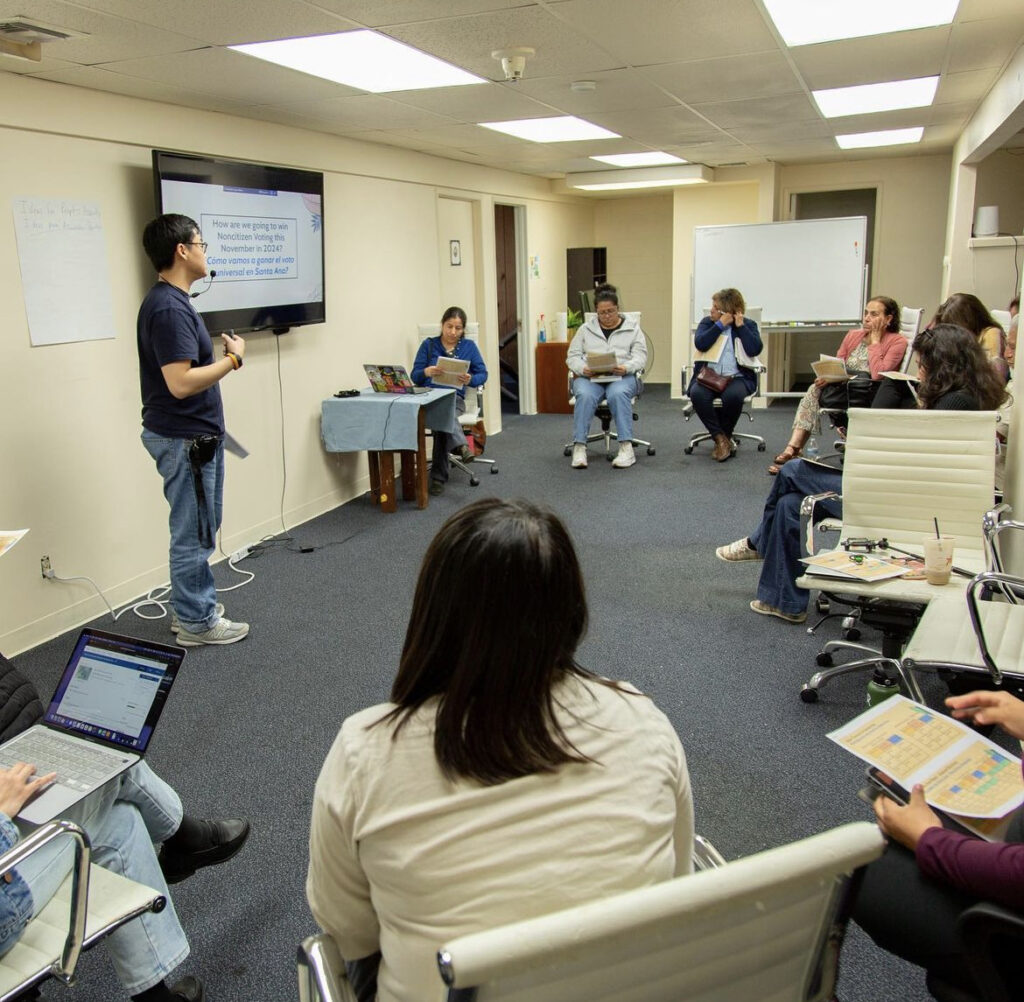
Since its start in 2018, VietRise has organized around local policies such as passing rent stabilization and non-citizen voting in Santa Ana, California. Tran said though these issues are typically associated with progressive politics, he sees Vietnamese people in Santa Ana are concerned about them, regardless of age or party affiliation.
“When we talk about issues like rent control, typically you think of it as just a left-wing policy and anyone who is a registered Republican is going to reject it,” Tran said. “But in reality, we’re seeing something much different. Issues like rent control have been a way for us to also have these bigger, different conversations with the residents who typically might lean right.”
Feature
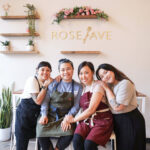
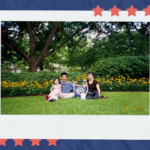


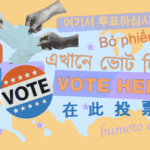
Austin 2024





Apply
Become a fellow or editor
Donate
Support our impact
Partner
Work with us as a brand
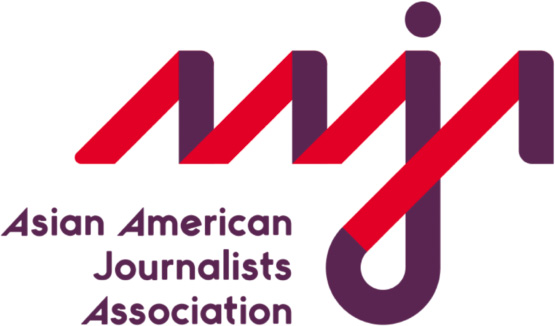
The Asian American Journalists Association (AAJA) is a membership nonprofit advancing diversity in newsrooms and ensuring fair and accurate coverage of communities of color. AAJA has more than 1,500 members across the United States and Asia.